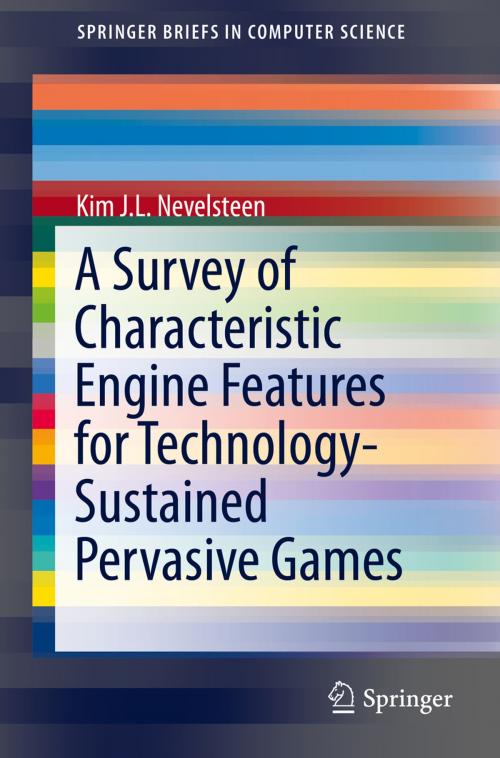A Survey of Characteristic Engine Features for Technology-Sustained Pervasive Games
Nonfiction, Computers, Advanced Computing, Engineering, Computer Vision, Programming, User Interfaces, General Computing| Author: | Kim J.L. Nevelsteen | ISBN: | 9783319176321 |
| Publisher: | Springer International Publishing | Publication: | May 8, 2015 |
| Imprint: | Springer | Language: | English |
| Author: | Kim J.L. Nevelsteen |
| ISBN: | 9783319176321 |
| Publisher: | Springer International Publishing |
| Publication: | May 8, 2015 |
| Imprint: | Springer |
| Language: | English |
This book scrutinizes pervasive games from a technological perspective, focusing on the sub-domain of games that satisfy the criteria that they make use of virtual game elements. In the computer game industry, the use of a game engine to build games is common, but current game engines do not support pervasive games. Since the computer game industry is already rich with game engines, this book investigates: (i) if a game engine can be repurposed to stage pervasive games; (ii) if features describing a would-be pervasive game engine can be identified; (iii) using those features, if an architecture be found in the same ‘product line’ as an existing engine and that can be extended to stage pervasive games (iv) and, finally, if there any challenges and open issues that remain.
The approach to answering these questions is twofold. First, a survey of pervasive games is conducted, gathering technical details and distilling a component feature set that enables pervasive games. Second, a type of game engine is chosen as candidate in the same product line as a would-be pervasive game engine, supporting as much of the feature set as possible. The architecture is extended to support the entire feature set and used to stage a pervasive game called Codename: Heroes, validating the architecture, highlighting features of particular importance and identifying any open issues. The conclusion of this book is also twofold: the resulting feature set is verified to coincide with the definition of pervasive games and related work. And secondly, a virtual world engine is selected as candidate in the same product line as a would-be pervasive game engine. Codename: Heroes was successfully implemented, reaping the benefits of using the selected engine; development time was low, spanning just a few months. Codename: Heroes was staged twice, with no stability issues or down time.
This book scrutinizes pervasive games from a technological perspective, focusing on the sub-domain of games that satisfy the criteria that they make use of virtual game elements. In the computer game industry, the use of a game engine to build games is common, but current game engines do not support pervasive games. Since the computer game industry is already rich with game engines, this book investigates: (i) if a game engine can be repurposed to stage pervasive games; (ii) if features describing a would-be pervasive game engine can be identified; (iii) using those features, if an architecture be found in the same ‘product line’ as an existing engine and that can be extended to stage pervasive games (iv) and, finally, if there any challenges and open issues that remain.
The approach to answering these questions is twofold. First, a survey of pervasive games is conducted, gathering technical details and distilling a component feature set that enables pervasive games. Second, a type of game engine is chosen as candidate in the same product line as a would-be pervasive game engine, supporting as much of the feature set as possible. The architecture is extended to support the entire feature set and used to stage a pervasive game called Codename: Heroes, validating the architecture, highlighting features of particular importance and identifying any open issues. The conclusion of this book is also twofold: the resulting feature set is verified to coincide with the definition of pervasive games and related work. And secondly, a virtual world engine is selected as candidate in the same product line as a would-be pervasive game engine. Codename: Heroes was successfully implemented, reaping the benefits of using the selected engine; development time was low, spanning just a few months. Codename: Heroes was staged twice, with no stability issues or down time.















